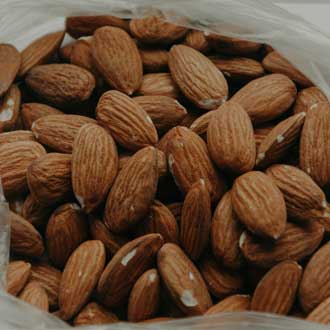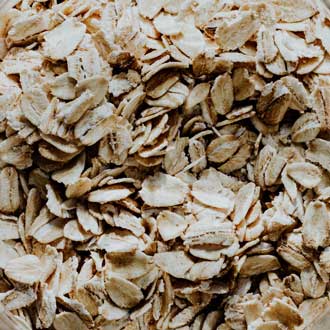The Ultimate Guide to Foods that Increase Breast Milk Production AKA Galactagogues

Being able to make enough milk is a constant worry for many moms. Am I producing enough? Is my baby getting all the nutrition? How are other moms able to pump so much more? With an increasingly connected world, new mothers may feel even more challenged about their own supply, leading to self doubt, stress and anxiety. In many cases mothers even give up breastfeeding, worried that their baby is not getting enough milk.
If you do feel that you are not making enough milk, the first step is to consult your baby's pediatrician or a lactation consultant to check if your baby actually needs more or if your supply is indeed low. Also check these natural practices to boost your milk supply and remember that there are no substitutes for proper breastfeeding practices and frequent emptying of the breasts through nursing or pumping.
While the use of food and herbs that promote lactation is gaining popularity again, it has been practiced since hundreds of years in many cultures. Scientific studies on many of such galactagogues might be sparse due to the challenges associated with conducting such studies on a large enough scale during a delicate moment of a woman’s life. However, most moms who have used these swear by them, and since they are all natural, it is easy to include them in your diet. As with all things natural or otherwise, always consult your midwife or doctor before consuming any supplements or herbs to make sure there are no contraindications for you.
What are galactagogues and how do they work?
Galactagogues or lactogenic foods are foods that increase your milk supply. Most of the galactagogues work by increasing the prolactin levels in a mother's body, which is the hormone responsible for breast-milk production. Foods rich in phytoestrogen (plant based estrogens) can lead to an increased production of prolactin, there by triggering more milk production.
Foods that help in increasing milk production

- Oats & barley: Oats and barley contain phytoestrogens, and a fiber called beta-glucan that can increase prolactin levels in the body. Oats also have a balanced nutrition profile, being rich in complex carbs, fiber, protein & antioxidants which are beneficial for new mothers whether she is breastfeeding or not. They are quite easy to include in your diet as oatmeal, oat cookies or oat granola.
- Fennel: Both the fennel plant and its seed contains phytoestrogens, and have been used traditionally to increase milk supply. As a vegetable, fennel bulb can be eaten raw in salads, stir-fried with other vegetables or cooked along with meat or lentils for a wonderful licorice flavor. The seeds are equally versatile as well and can be had as a tea, or included in baking breads or cookies.
- Moringa Leaf: Moringa leaf powder has numerous benefits for a new mother, including being a potent galactagogue. Some studies have shown a dramatic effect of Moringa on increasing breast-milk, and it is even recommended by the United Nations for pregnant and nursing mothers due to its nutrient density and benefits. Moringa leaf should be consumed whole or powdered for extracting its maximum benefits, and it can be had as a tea, mixed in smoothies, or used in baking (it can add a slight bitter flavor though when baked).
- Nuts, especially almonds: Nuts like almonds, cashews and macadamia nuts are also used as lactogenic foods that also nourish the mother. Almonds are rich in calcium and magnesium which help in maintaining milk supply during a mother's periods. They are also rich in iron, protein and healthy fats. Eating raw nuts is the best way to consume them, but you can also use them in baking, or dry roast them to make a trail mix.
- Fenugreek seeds: Fenugreek is one of the most popular galactagogues but also one that needs moms to be a little careful about. Several studies have found significant increase in breastmilk production by using fenugreek and thousands of mothers swear by it. When used in moderation, it can even double the milk production in few days. However, there are minor side-effects like smelly sweat and urine and gas/bloating in infants. Also mothers who are diabetic, have asthma or are allergic to peanuts or chickpea should consult their physician before consuming fenugreek. Fenugreek seeds can be had as tea, or can be added to food and baking.
- Sesame and flaxseed: Sesame seeds and flaxseeds are rich in phytoestrogens and other nutrients that promote healthy lactation. They are also rich in calcium, protein and healthy fatty acids that help in replenishing a mothers depleted nutrient reserve. Sesame and flaxseeds can be used in baking, or sprinkled over salads and included in dips and dressings. They also make a great ingredient for smoothies when powdered.
- Dates: One of the less popular galactagogues, dates have been given to new moms in Middle Eastern and Chinese cultures since hundreds of years. Along with supporting lactation, they also boost mother's energy and provide fibers that aid digestion. Red date tea is very popular in Chinese culture and new moms even drink it all day instead of water. Dried dates can be had as a snack, with nuts, used in baking, or added to oatmeal/cereal.
- Ginger: Ginger root has been traditionally used to promote lactation, and has shown results in early postpartum weeks. It also relieves nausea and helps with digestive issues which can be a blessing for moms. Ginger root can be used to make teas, grated over salads, used to cook with as paste and added during baking.
- Turmeric root: This anti-inflammatory warrior, which has been used to promote milk production in many cultures, also helps in preventing clogging of milk ducts along with its numerous benefits for new moms. A dash of turmeric in a cup of milk (aka golden milk), or food while cooking can pass all the curcumin goodness to the new mom.
- Shatavari root: Shatavari (Asparagus racemosus) is another less popular but potent galactagogues that has recently started gaining popularity in the US. It has been used in Ayurvedic postpartum care since hundreds of years, usually given as a paste made with shatavari powder, ghee and cardamom to new mothers. It also promotes vitality and strength with its restorative benefits, while supporting the female reproductive system and balancing hormones.
Some other foods commonly used as galactagogues are ashwagandha root, dill seeds, nettle leaf, blessed thistle, brewer's yeast, goat's rue, dark leafy greens, garlic, and carom seeds.
Quality of breast-milk
Although producing sufficient breast milk is important, it is also important for the milk to be nutrient rich to ensure that the baby gets all the vital building blocks. While the pressure to eat right or get enough nutrients should not discourage mothers from continuing to breastfeed (breast-milk even on a less-than-ideal diet is likely to be more beneficial to the baby than formula), few simple additions can help in improving the nutrient density of breast-milk.
Make sure you include foods rich in calcium, protein, iron, omega-3 and lauric fatty acid in your diet. Omega-3 fatty acids are abundant in fish, algae, walnuts, flaxseeds and avocado. Lauric acid is an important constituent of breast milk and studies have shown that that presence of these healthy fats in mother's diet can increase their quantity in the breast-milk within hours of consumption. Coconut is one of the best sources of lauric acid and can be included as coconut oil or coconut flakes in the mother's diet.
Summary
Stressing about milk production is perhaps natural for a new mother. However following best practices for breastfeeding, consulting a lactation consultant, and including galactagogues in your diet can work well in most situations. Make sure that you are nourishing yourself well at the same time, by choosing the lactogenic foods that are nutrient dense as well.
Shruti is the founder of Freshly Moms, and a certified nutritionist. Freshly Moms is a new mom startup that makes high quality organic nutrient-dense snacks, meal-kits and beverages which support postpartum recovery and breastfeeding. Freshly Moms also provides information on perinatal care and nutrition with a focus on mother's well-being.
For personalized care, including increasing milk supply, consider booking a lactation support visit through boober. Virtual or in-person appointments available. Learn more or book an appointment here.